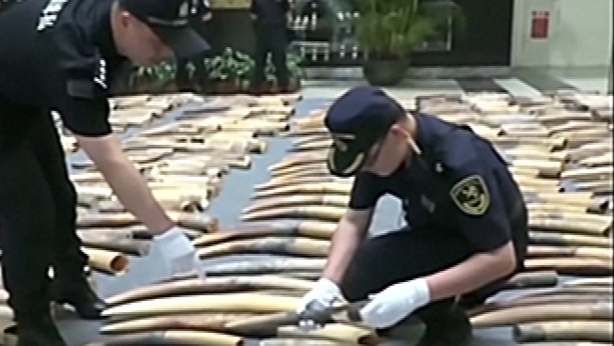Chinese authorities have seized 7.5 tonnes of ivory in one of the biggest busts in recent years as the country cracks down on the sale of illegal wildlife products.
The sale of ivory was banned in China at the end of 2017 in an attempt to rein in what used to be the product's largest market.
Imports were banned in 2015.
2,748 elephant tusks were confiscated at the end of March in an operation by customs officers and police across six provinces, according to the General Administration of Customs.
"This case represents the largest amount of elephant tusks seized in a single case investigated independently by the General Administration of Customs' anti-smuggling bureau in recent years," said Sun Zhijie, director of the administration's anti-smuggling bureau.
The operation "destroyed an international criminal organisation that for a long time has specialised in smuggling ivory tusks," Mr Sun said.
Twenty suspects were detained, he added.
The tusks were shipped by sea from African countries. After transiting through various other countries, they were smuggled across the Chinese border hidden among lumber, Mr Sun explained.

TRAFFIC, an international NGO monitoring wildlife trade, said in a press release that the seizure was potentially the second biggest ivory seizure worldwide on record.
In a report conducted with WWF last year, the organisation found that China's ivory ban has had positive effects, with the number of respondents who said they intended to purchase ivory in the future dropping by almost half compared to 2017 before the ban took place.
Ivory is seen as a status symbol in China. Other illegal wildlife products, such as pangolin scales, continue to see demand for their supposed medicinal properties.

